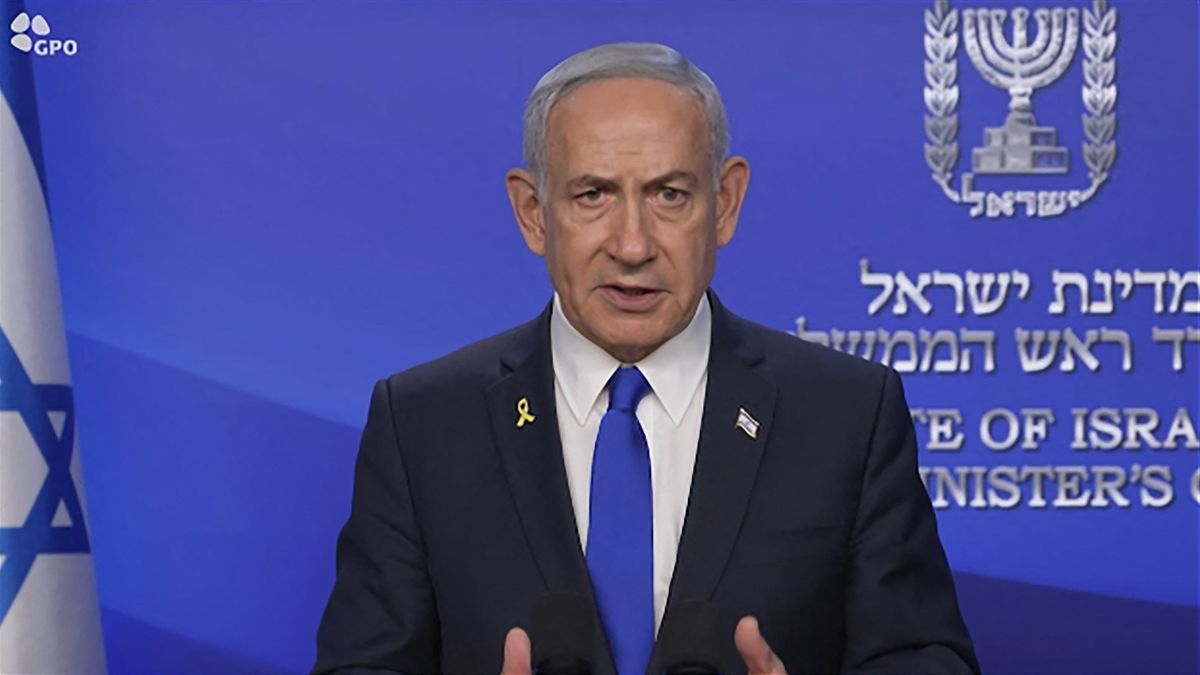Israel-Iran conflict: Opposition rallies around Netanyahu as war with Tehran intensifies
 From the Government Press Office (GPO) video where Israel Prime Minister Benjamin Netanyahu announced the launch of a targeted military operation against Iran on June 13, 2025 | AFP/GPO
From the Government Press Office (GPO) video where Israel Prime Minister Benjamin Netanyahu announced the launch of a targeted military operation against Iran on June 13, 2025 | AFP/GPO
Just a day before Israeli warplanes struck deep into Iranian territory, opposition parties in Israel were pushing to unseat Prime Minister Benjamin Netanyahu. For months, they had accused him of prolonging the war in Gaza for political gain and failing to prioritise national unity. But once the Iran operation began, the tone shifted dramatically.
In the face of what leaders call an existential threat, critics of the prime minister swiftly put aside political rivalry, closing ranks behind the military effort. What had been a bitter and deeply polarised domestic debate gave way, at least temporarily, to a show of national solidarity.
Yair Lapid, opposition leader and former prime minister, wrote in the Jerusalem Post that Iran stands behind Hamas and Hezbollah, the October 7 massacre, and attacks on Israeli targets from Buenos Aires to Mumbai. He added that Tehran has long used Syria and Lebanon as tools to encircle Israel, funding terror groups in the West Bank to maintain instability.
Benny Gantz, National Unity chairman and a key centrist figure in the opposition, told UK-based Iran International that Israel’s pre-emptive strike on Iran was “justified and necessary”, and that the opposition stood united with the coalition on this issue. “Any disagreements will have to wait,” he said.
Naftali Bennett, another former prime minister and a popular contender to succeed Netanyahu, echoed the sentiment. “There is no right, no left, no opposition, and no coalition,” he told Channel 13, calling the Iranian nuclear programme a “cancerous growth” threatening Israel’s existence.
It marks a dramatic reversal for parties that had sharply criticised Netanyahu’s leadership during the Gaza war. Just days before the Iran operation, Lapid had demanded early elections in the Knesset, accusing Netanyahu of putting political survival ahead of national interest. That motion to dissolve parliament narrowly failed. But after Iranian missiles struck Israel — one damaging the home of Lapid’s son — the tone shifted. “Yes, this government needs to go, but not in the midst of an existential war,” he told the Associated Press.
Such unity during wartime is not uncommon in Israeli politics. However, given the deep polarisation surrounding Netanyahu, who is facing corruption charges and propped up by far-right allies, the opposition’s about-face is striking.
Lapid insists the support is for Israel’s defence, not for Netanyahu. “We didn’t rally behind the government. We rallied behind necessity,” he said. Lapid, meanwhile, underlined that Israel has no quarrel with the Iranian people. “We have no territorial demands. But their regime wants us dead, and we refuse.”
Middle East